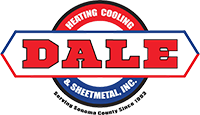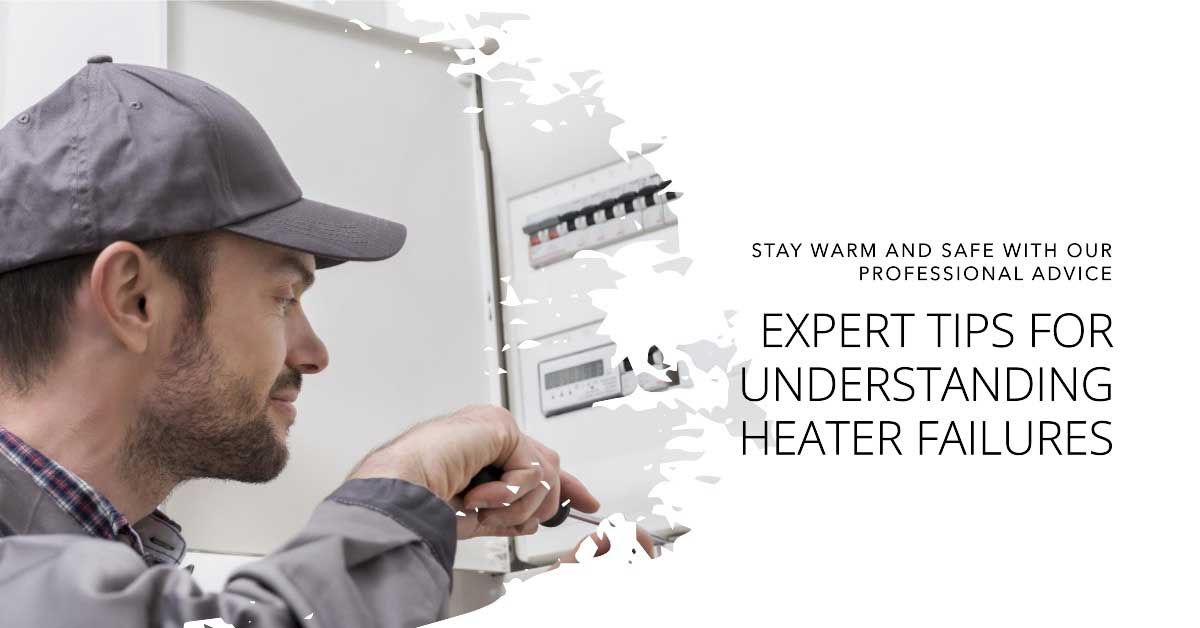When the chill of winter settles in, the last thing you want is to be greeted by cold air blowing from your vents due to a heater failure. Understanding the common reasons behind heater failures is not only about comfort but also about ensuring your family’s safety and avoiding costly emergency repairs. This article delves into the practical steps you can take to troubleshoot issues before they escalate, keeping your heater running efficiently and reliably.
| Topic | Key Points |
|---|---|
| Heater Failures | Common reasons, troubleshooting before calling an expert |
| Preventative Maintenance | Benefits, DIY checks, professional servicing |
| Professional Expertise | When to call, what to expect, certifications |
| HVAC System Health | Long-term benefits, energy efficiency, longevity |
| Call to Action | Contact information, local family-owned service value |
As we explore the intricacies of heater maintenance and repair, remember that preventive care is your first line of defense against a heater failure. Let’s begin by identifying the common issues that could be at the root of your heating woes.
Troubleshooting Common Heater Issues
The frustration of discovering your heater has failed on a cold day can be overwhelming. Before you reach for the phone to call an expert, there are several troubleshooting steps you can undertake. These can often resolve simple issues or provide valuable information to your HVAC technician if a service call is needed.
The Basics of Heater Troubleshooting
Start by checking the most basic elements:
- Ensure your thermostat is set to heat and is above room temperature.
- Check circuit breakers or fuses for any that have tripped or blown.
- Replace or clean your furnace filter if it’s clogged, as this can restrict airflow and overheat your system.
Common Mechanical Issues
Sometimes the problem is mechanical:
- Listen for unusual noises that could indicate a problem with the blower motor or fan.
- Inspect the pilot light on gas heaters; a flame that’s not blue could mean incomplete combustion.
- Check for blocked air intake or exhaust vents outside your home.
Considering System Age and Maintenance History
The age of your heater and its maintenance history can also be factors. Older systems or those that haven’t been regularly serviced may have wear and tear that lead to failures.
- Regular HVAC maintenance can prevent unexpected breakdowns.
- A history of frequent repairs might indicate that it’s time for a new heater or significant parts replacement.
Now that we’ve covered the initial steps you can take when faced with a heater failure, let’s delve into the importance of preventative maintenance to avoid these issues in the first place.
The Importance of Preventative Maintenance
Preventative maintenance goes a long way in preventing the common issues that cause a heater to fail. Here are the key components:
DIY Maintenance Checks
There are several maintenance tasks you can perform yourself:
- Routinely replace or clean air filters to maintain airflow and air quality.
- Keep vents and registers unblocked to ensure proper air distribution.
- Check and maintain your thermostat to ensure it’s functioning correctly.
Professional Servicing
For more comprehensive checks, professional servicing is recommended:
- An HVAC technician will inspect electrical connections, lubricate moving parts, and check system controls.
- They can also measure voltage and current on motors and inspect the heat exchanger for cracks, which could be dangerous.
The Value of Routine Checks
Routine checks not only ensure safety but also:
- Improve system efficiency, reducing your energy bills.
- Extend the life of your HVAC system, avoiding premature replacement costs.
Understanding when to handle maintenance yourself and when to call in the professionals is crucial. Let’s explore how to make that distinction and what to expect when you seek expert help.
Leveraging Professional Expertise
Even with diligent maintenance, some heater issues require professional expertise. Here’s when and why you should consider professional HVAC services:
Recognizing the Limits of DIY
Complex issues, such as problems with internal components or refrigerant leaks in heat pumps, necessitate professional skills and tools. When safety is a concern, such as with gas leaks or electrical problems, it’s time to call in the experts.
Professional Diagnosis and Repair
Certified HVAC technicians can provide:
- A thorough diagnosis using advanced tools and their expertise.
- Reliable repairs, often with warranties on parts and labor.
Certifications and Quality of Service
When choosing an HVAC service, consider:
- Technicians should have proper certifications, such as NATE (North American Technician Excellence).
- Look for a company with a solid reputation for quality service and customer satisfaction.
Regular professional maintenance not only solves immediate issues but also contributes to the overall health of your HVAC system. Next, we’ll discuss the long-term benefits of keeping your HVAC system in top shape.
The Long-Term Benefits of HVAC System Health
An efficiently running HVAC system is the cornerstone of home comfort and air quality. Here’s how proper maintenance contributes
to the system’s health and efficiency:
Enhanced Energy Efficiency
Regular maintenance ensures that your HVAC system operates at peak efficiency, which:
- Saves on energy costs by reducing waste.
- Reduces your carbon footprint, contributing to environmental conservation.
System Longevity and Reliability
A well-maintained heater has a longer lifespan and is more reliable because:
- Regular checks can catch and fix small issues before they become big problems.
- Components kept in good condition reduce the strain on your system.
Improved Indoor Air Quality
Lastly, proper maintenance improves the quality of air in your home by:
- Ensuring clean filters and ducts, which filter out pollutants and allergens.
- Maintaining optimal humidity and temperature control for comfort.
With a clear understanding of the steps to troubleshoot your heater, the importance of maintenance, and when to call in professionals, let’s wrap up with a summary of the key points covered.
Conclusion
Regular attention to your heater can avert the inconvenience and discomfort of a failure. By understanding the basics of troubleshooting, committing to preventative maintenance, and recognizing when to call in certified professionals, you can ensure a warm, safe, and efficient home environment. Remember, an ounce of prevention is worth a pound of cure, especially when it comes to the complex workings of your HVAC system.
If you’ve taken these steps and still find yourself in need of assistance, or if you prefer to entrust your HVAC system’s health to experts from the start, the next step is clear.
Get Expert HVAC Help
For those who’ve tried troubleshooting without success, or for anyone who values the peace of mind that comes with professional service, contact Dale HCS, your local Sonoma County for expert guidance. As a family-owned company, Dale HCS prides itself on providing top-notch HVAC services that ensure your family’s comfort and safety. Don’t let heater failures leave you in the cold—reach out today and experience the commitment to excellence that only a local, family-owned business can provide.

